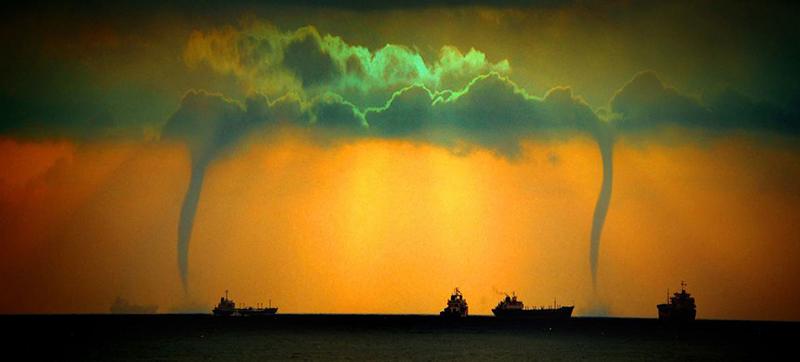 ClimateChange
ClimateChange
Climate change making Earth ‘uninhabitable’ Guterres warns
New York: Humanity is facing a “difficult truth” the UN chief said just ahead of World Meteorological Day, marked on Thursday – the damage already being caused by climate change is “making our planet uninhabitable.”
He laid down the challenge to governments worldwide, to make 2023 a year of “transformation, not tinkering” when it comes to seriously addressing climate change, with meaningful climate action.
‘Closer to the brink’
“Every year of insufficient action to keep global warming below 1.5 degrees Celsius drives us closer to the brink, increasing systemic risks and reducing our resilience against climate catastrophe”, said Secretary-General António Guterres.
Climate change is intensifying heatwaves, droughts, flooding, wildfires and famines, he warned, while threatening to submerge low-lying countries and cities as sea levels rise due to melting glaciers and increasingly extreme weather.
The combined impact of this will be to drive yet more species to extinction, Mr. Guterres said.
This year’s theme, The Future of Weather, Climate and Water Across Generations “compels us all to live up to our responsibilities” to future generations, he added.
Mitigation and adaption
“That means accelerating actions to limit temperature rise to 1.5 degrees, through scaled-up mitigation and adaptation measures. It means radically transforming our energy and transportation systems, breaking our addiction to fossil fuels, and embracing a just transition to renewable energy.”
He said developed nations have an obligation now to lead a financial and technical “revolution” that can help all countries reduce carbon emissions, adapt to the future by mainstreaming renewable energy sources such as water and wind, and build up resilience to climate shocks.
Address loss and damage
Chief among this, is the urgent need to address the loss and damage impacting countries least able to cope - and least at fault - resulting from climate change, Mr. Guterres said.
“And it means living up to the promise made last World Meteorological Day to ensure that early warning systems against climate disasters cover every person in the world. Thirty countries have now been identified for accelerated implementation this year.
“It’s time to end the relentless - and senseless - war on nature”, the UN chief concluded, “and deliver the sustainable future that our climate needs, and our children and grandchildren deserve.”
Support Our Journalism
We cannot do without you.. your contribution supports unbiased journalism
IBNS is not driven by any ism- not wokeism, not racism, not skewed secularism, not hyper right-wing or left liberal ideals, nor by any hardline religious beliefs or hyper nationalism. We want to serve you good old objective news, as they are. We do not judge or preach. We let people decide for themselves. We only try to present factual and well-sourced news.







